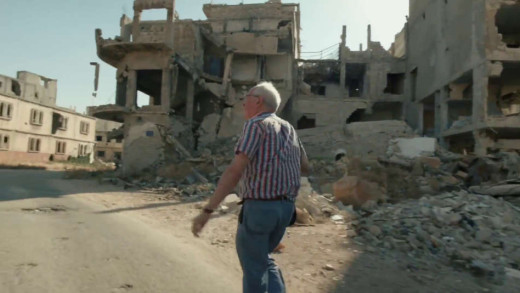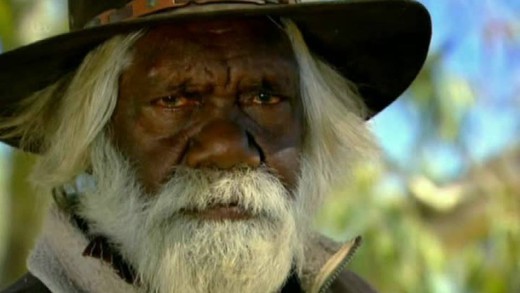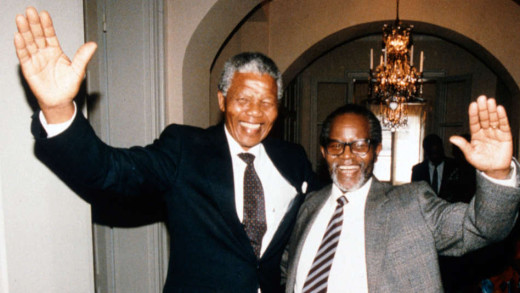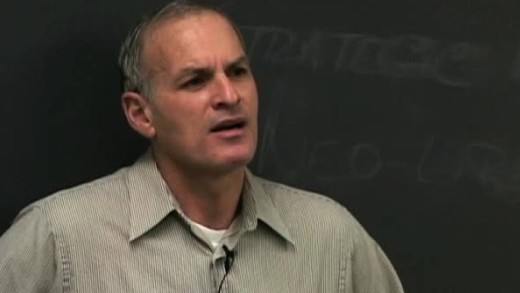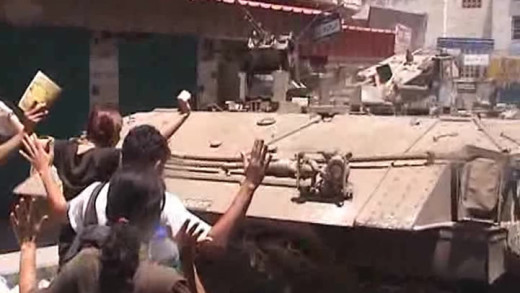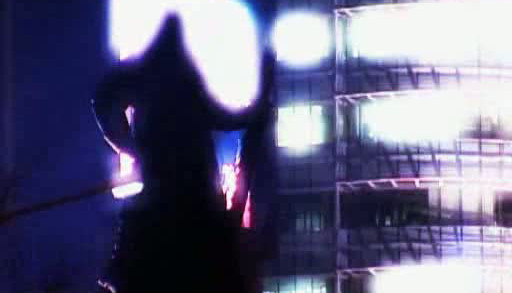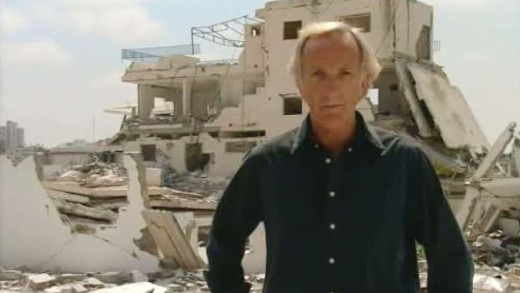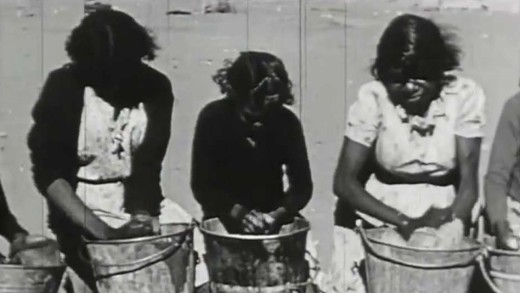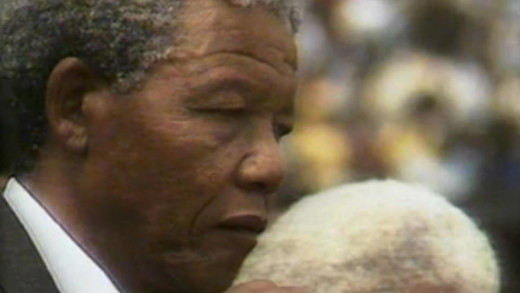This Is Not a Movie is a profile of the career of Robert Fisk, an influential British war correspondent whose groundbreaking and often game-changing journalism during some of the most violent and divisive conflicts in the world, has been imperative to reporting the reality of war. The film captures Fisk in action, notebook in hand, as he travels into landscapes devastated by war, seeking out the facts on the ground, and firing reports back home to reach an audience of millions. Fisk talks passionately about his process of translating raw experience into incisive and passionate dispatches, while showing his determination to see things first-hand and the tenacity to say what others won't. In his pursuits of the truth, Fisk has attracted criticism, but in spite of the system stacked against him, and the huge personal risks and dangers, he continues to cover stories as they unfold, talking directly to the people involved. This Is Not a Movie is a homage to Fisk's legacy to speak truth to power, in an era of fake news, and where journalists are dubbed "the enemies of the people."
Utopia
Utopia is both an epic portrayal of the oldest continuous human culture on the planet--indigenous Australia--and an investigation into a suppressed colonial past and rapacious present. One of the world's best kept secrets is revealed against the great Australian 'mining boom,' showing how the country's racially divided past and current-day media collusion play their parts in a system that is apartheid in all but name. The film examines the exploitation of the Aboriginal population, both as a people and of the land they have lived on for centuries, and how so many institutions have profited while people continue to suffer. The injustice stretches across countless generations and stories. Utopia reveals this universal story of power and resistance, driven by old imperatives, in a media age of saturation which is profoundly silent and complicit; a call to continue resistance.
Have You Heard From Johannesburg? is series chronicling a history of the global anti-apartheid movement that opposed South Africa's entrenched apartheid regime. The movement encompassed many methods, including mass action, underground organising, armed struggle, and international mobilisation. This series focuses on the last category: the movement to mobilise worldwide citizen action to isolate the apartheid regime. Inspired by the courage and suffering of South Africa's people as they fought back against the violence and oppression of racism, foreign solidarity groups, in cooperation with exiled South Africans, took up the anti-apartheid cause. Working against the odds, in a climate of apathy or even support for the governments of Verwoerd, Vorster and Botha, campaigners challenged their governments and powerful corporations in the West to face up to the immorality of their collaboration with apartheid, revealing that the battle was more than just political. It was economic, cultural, moral, and spiritual. The combined stories have a scope that is epic in both space and time, spanning most of the globe over half a century. Beginning with the very first session of the United Nations, and ending in 1990--when, after 27 years in prison, Nelson Mandela, the best known leader of the African National Congress, toured the world, a free man.
American Radical is a film about the life of academic Norman Finkelstein, a son of Holocaust survivors and ardent critic of Israel. Called a lunatic and self-hating Jew by some, and an inspirational figure by others, American Radical also serves to explore the issues at the centre of Palestine and Israel as Finkelstein travels around the world negotiating a voice of realism among impassioned critics and Israeli supporters. Uncompromising, even in the face of a denial of tenure at DePaul University, Finkelstein is revealed as a rare academic figure who puts the pursuit of justice above the security of his career, to expose the brutal reality of the occupation of Palestine.
What drives a young Westerner to volunteer as a peace activist in the Middle East? Visit Palestine follows Caiomhe Butterly—a young woman from Dublin, Ireland; who is one of a growing number of volunteers who risk their own lives to intervene in the long-running and bloody conflict of the occupation of Palestine. Activists such as Butterly are usually stereotyped as lunatics, meddlers or saints. This film offers a first-hand insight into a brave, honest, determined yet self-critical woman who takes direct action to the limit, with no quest for glory. The film also serves as a real conduit into the everyday lives of Palestinians, fighting for their lives...
From the front-lines of conflicts in Mexico, Argentina, South Africa, Palestine, Korea, and the North; from Seattle to Genova and the "War on Terror" in New York, Afghanistan, and Iraq, The Fourth World War documents the stories of women and men all around the world who resist being annihilated in this war. Centred around economics and systems such as NAFTA, GATT, the G20, APEC and others, this is a war which plays along with the spread of rapacious globalisation, a feat that has pervasive consequences in the real world...
John Pilger returns to the Occupied Territories of the West Bank and Gaza where, in 1974, he filmed a documentary with the same title -- Palestine Is Still The Issue -- a film about the same issues, a nation of people, the Palestinians, forced off their land and subjected to military occupation by Israel. Pilger hears extraordinary stories from Palestinians, though most of his interviews are with Israelis whose voices are seldom heard, including the remarkable witness of a man who lost his daughter in a suicide bombing. But for Palestinians, the overriding, routine terror, day after day, has been the ruthless control of almost every aspect of their lives, as if they live in an open prison. This film is about the Palestinians and a group of courageous Israelis united in the fight to be free...
In Australia between 1910 and 1970, one in three children were removed from Aboriginal families and placed in government institutions and foster homes. These children, in most cases, were never to see their family again. The film tells the story of three Aboriginal people who were removed. Bobby Randall, Cleonie Quayle, and Daisy Howard. Their stories are combined with interviews with well-known Australian historians Marcia Langton and Henry Reynolds, who describe the racist assumptions behind these policies. Removing children was a deliberate government policy and the aim was the eventual disappearance of Aboriginal people as a whole.
Apartheid based on race is 'outlawed now', but the system always went far deeper than that. The cruelty and injustice were underwritten by an economic apartheid, which regarded people as no more than cheap expendable labour. It was backed by great business corporations in South Africa, Britain, the rest of Europe, and the United States and it was this apartheid based on money and profit that allowed a small minority to control most of the land, most of the industrial wealth, and most of the economic power. Today, the same system is called--without a trace of irony--the free market.
